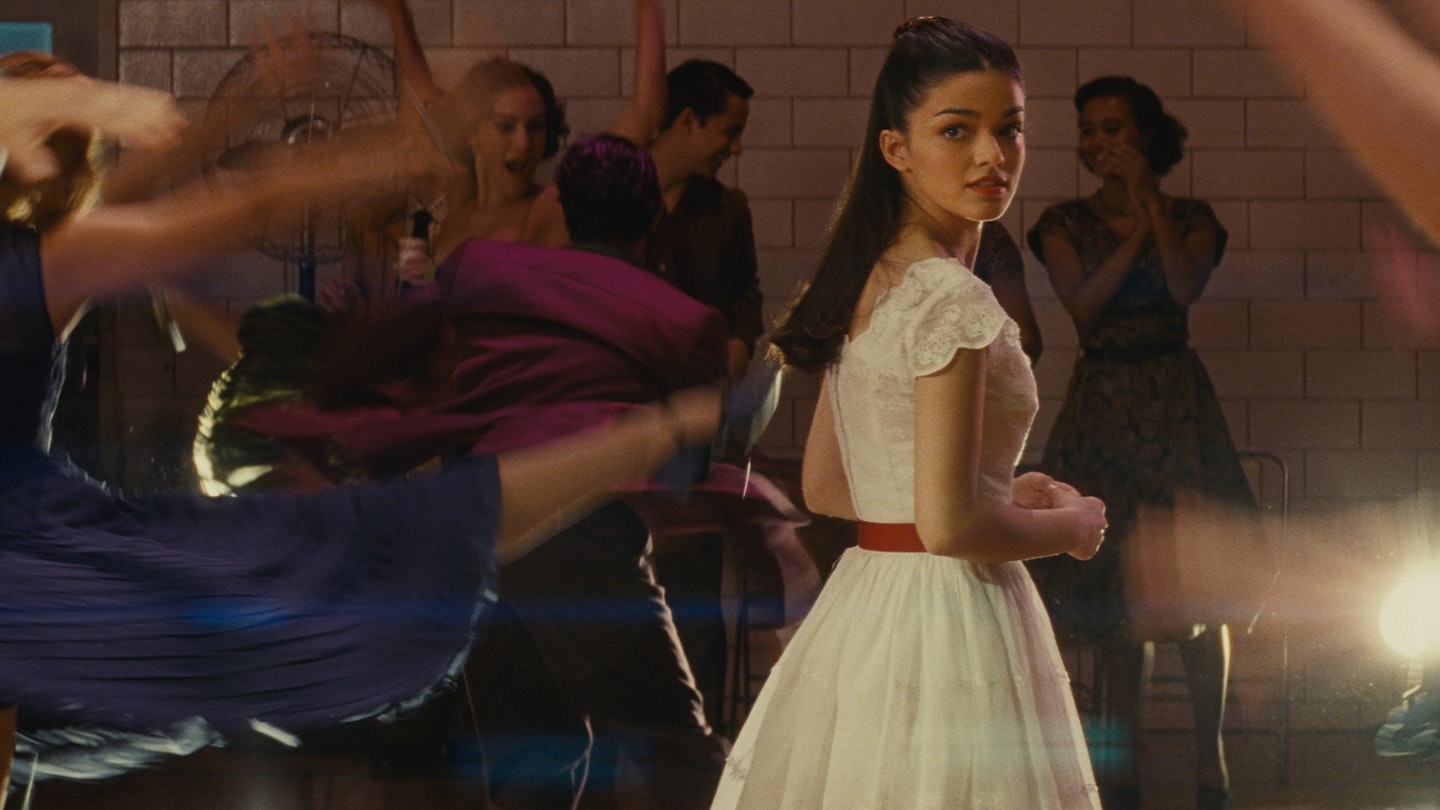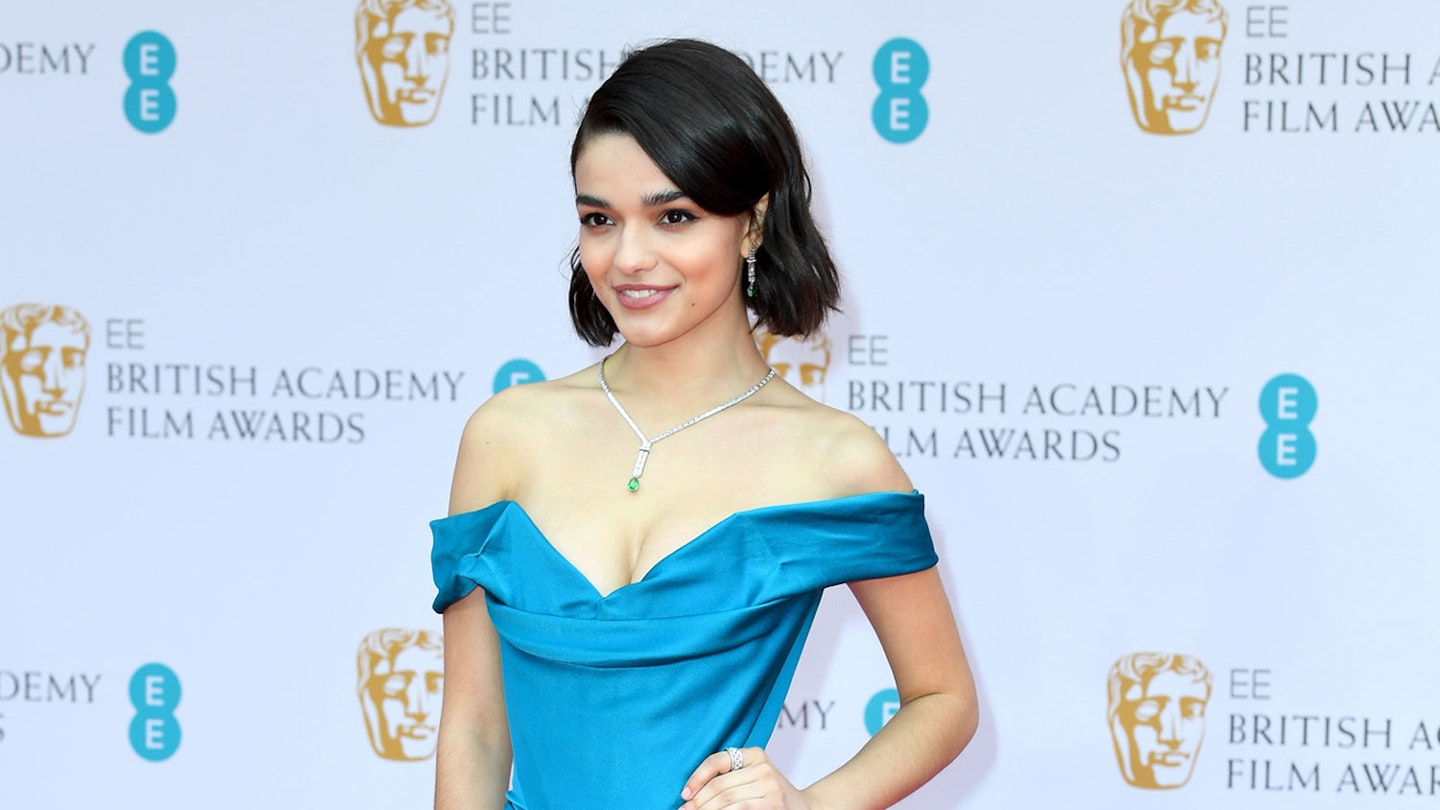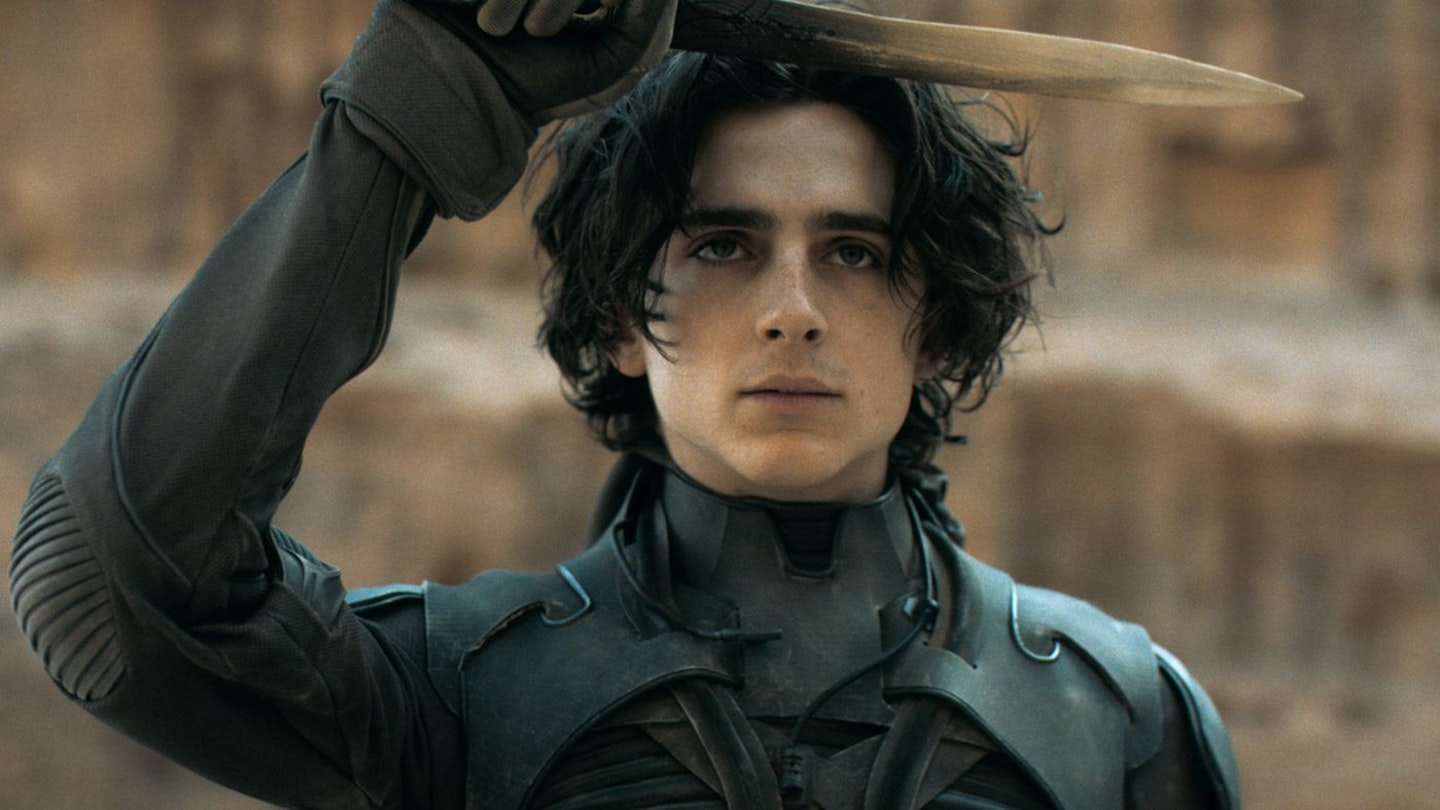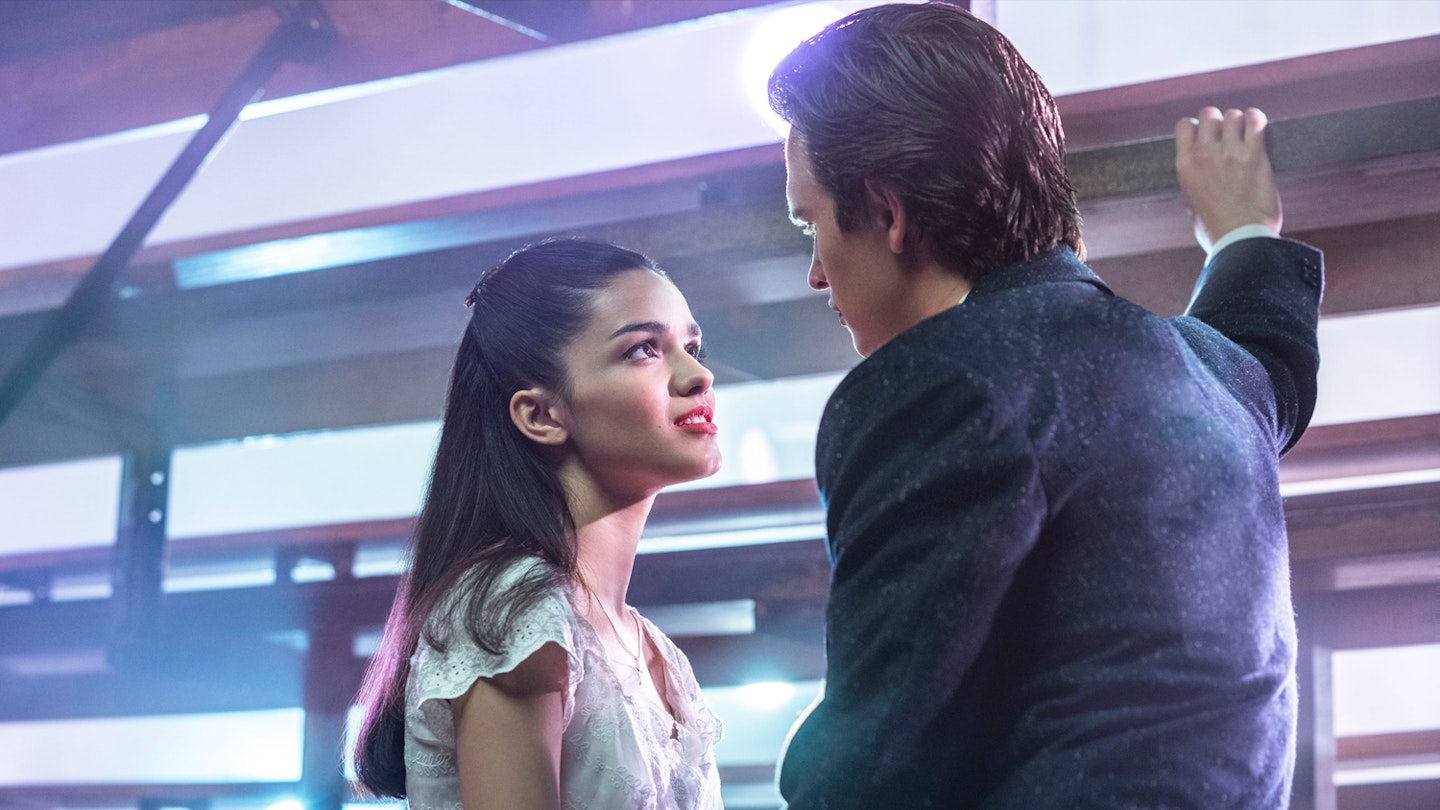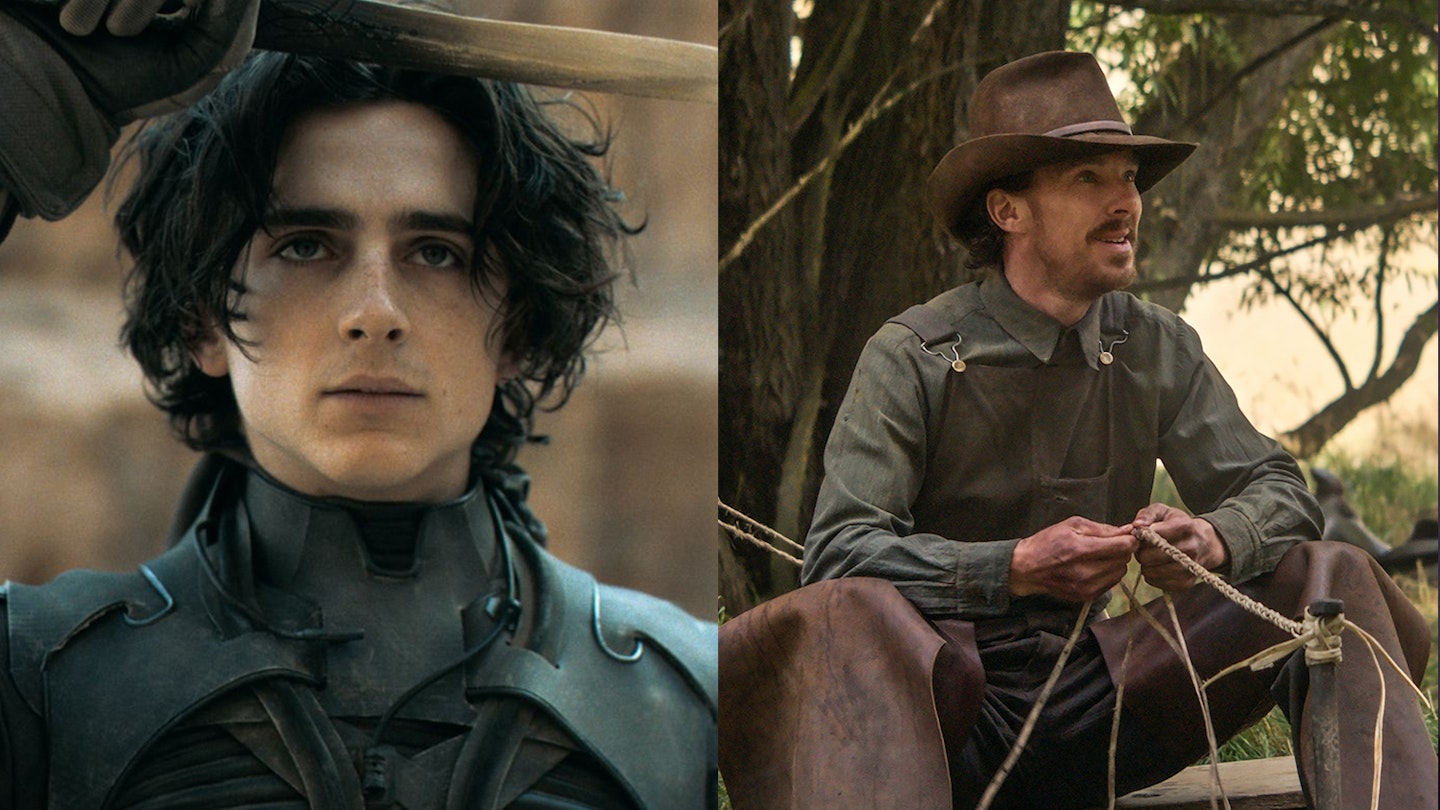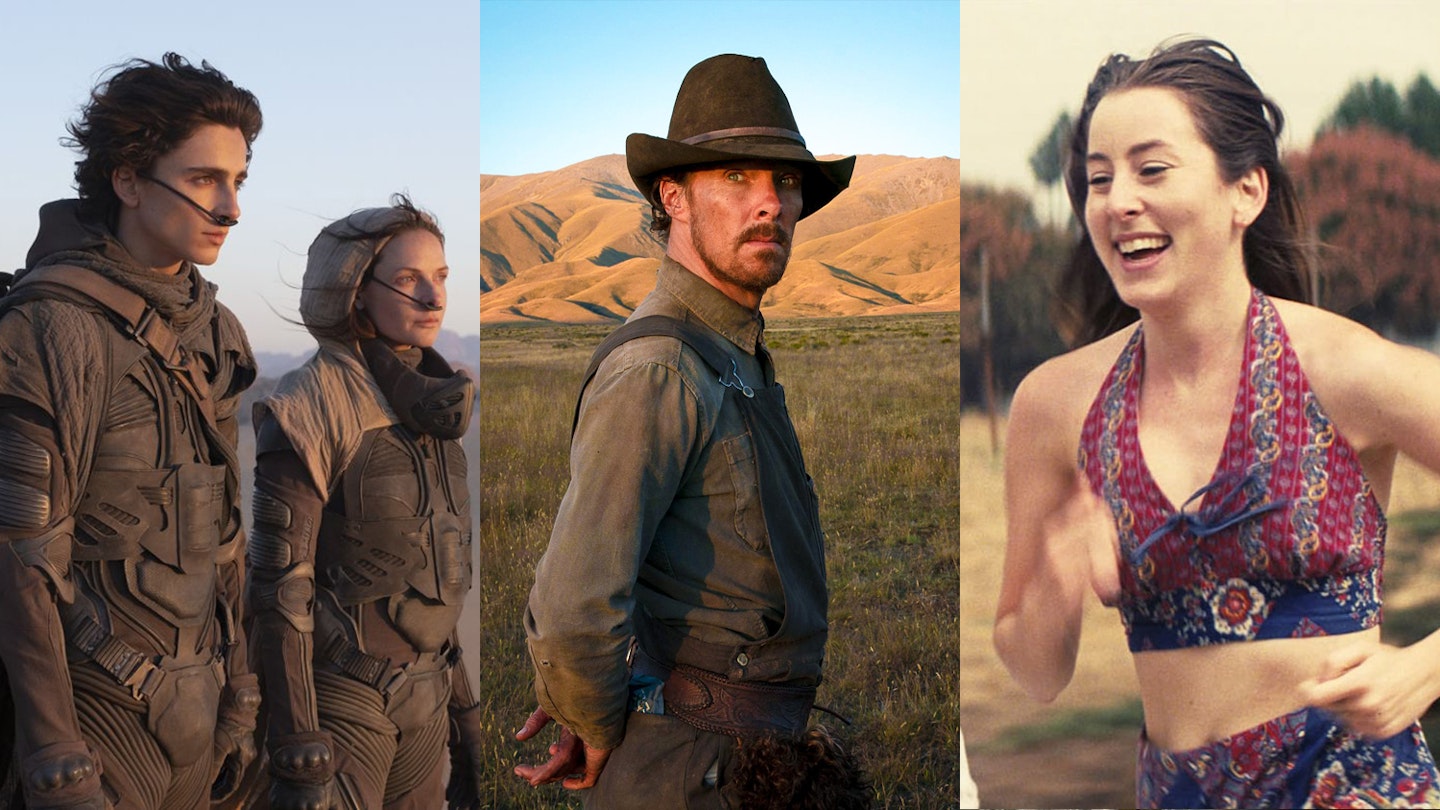This is the first, full Steven Spielberg musical, and it seems he has been depriving himself and us all. From the opening shot, set to the eerie, lonesome whistle of ‘Act I: Prologue’, there’s barely a frame that isn’t beautiful or a beat that feels off. His camera sweeps over a demolition project and recalls Soy Cuba’s famous oner before descending a crane to ground level. In other words, Spielberg literally comes in like a wrecking ball, emphasising that the setting is a turf war for vanishing turf that both gangs are, ultimately, destined to lose.
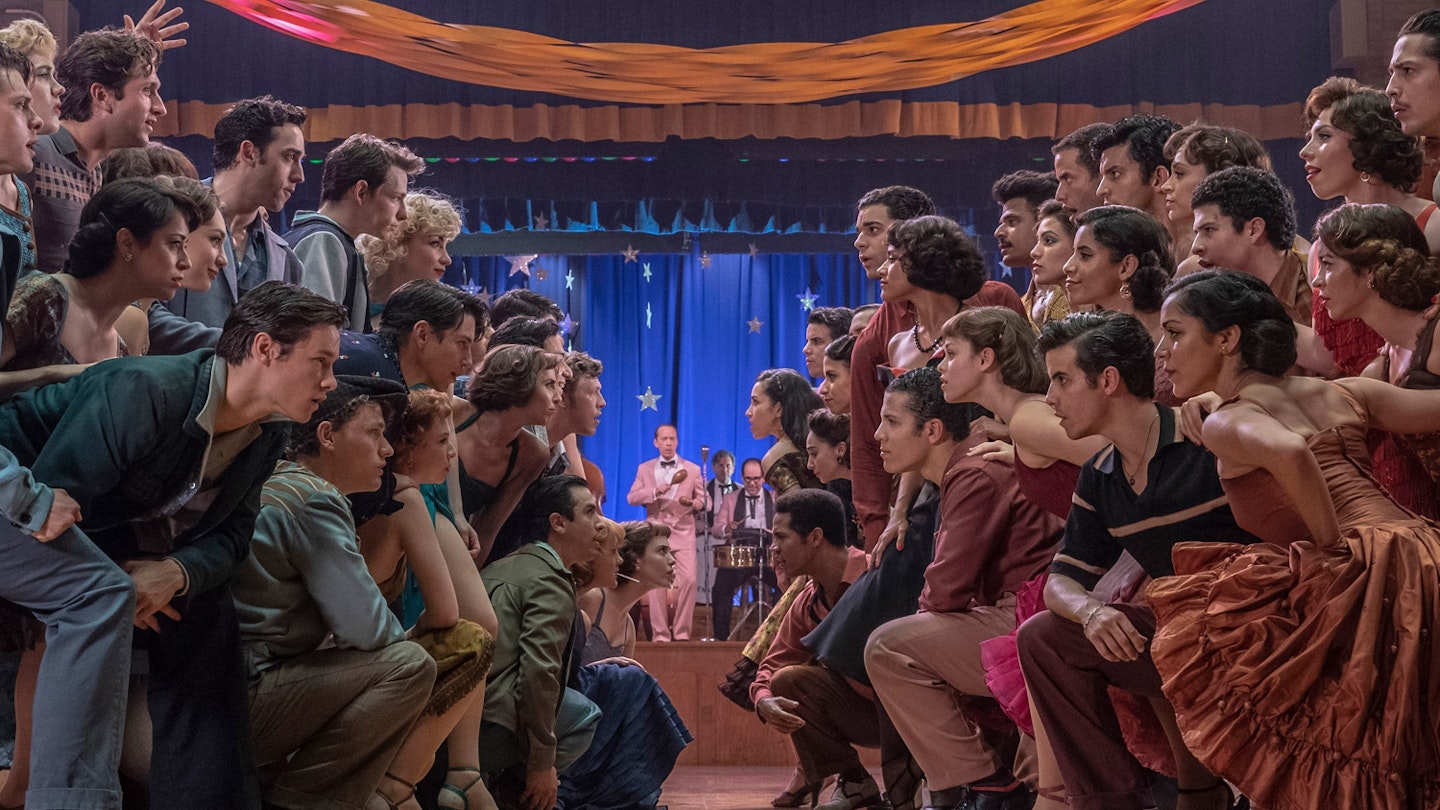
Despite the period setting and dance-fighting, this is a recognisable world, one where police are harder on communities of colour than their white counterparts and where a trans boy struggles for acceptance among toxically masculine peers. Tony Kushner’s script has adopted elements of both the stage show and 1961 film to create a sharper version than we’ve seen before, and Spielberg also freshens things up in small ways. Now Puerto Rican characters speak in quick Spanish among themselves, except when specifically reminded to practise their English by the assimilationist Anita (Ariana DeBose), and Spielberg doesn’t ‘other’ them by adding subtitles.
Spielberg keeps the expressionist colours and bold shapes of the ’61 film but opens out the stage to the real world.
Amid gang warfare, poverty and exclusion, love blossoms between reformed Jets brawler Tony (Ansel Elgort) and Maria (Rachel Zegler), sister to the Sharks’ leader Bernardo (David Alvarez). Their union fuels the conflict between the Jets and Sharks, led by Riff (Mike Faist) and Bernardo respectively, both magnetic, charismatic leaders. The lovers half reckon with their culpability but not at the expense of following their hearts. In fact, Maria’s attempts to convince Bernardo’s girlfriend Anita that she and Tony belong together seem almost sociopathic in the circumstances.
Tony and Maria’s characters usually feel like the weakest links, though, their Romeo and Juliet story flat amid all the bigger characters. At least Elgort and Zegler can sing, so their ballads make up for a lot, and Zegler gives Maria a little more backbone than previous incarnations. But it’s when the camera is on Riff, Bernardo, Anita or Rita Moreno’s Valentina that the film comes most alive. The sheer terror and fragile bravado of Riff and Bernardo’s confrontations will break your heart, the scrawny street-rat facing the boxer wary enough to know the dangers of fighting, and their physical fluidity makes the dance-fighting seem natural and logical. DeBose’s Anita does intense dramatic work while burning up the screen with sheer star power. Moreno, delicate and beautiful in a return to the material that made her name, gives context and weight to all these young-people problems; with one song, she makes it clear that these conflicts and heartbreaks stretch back generations.
But it’s Spielberg who is the MVP. He keeps the expressionist colours and bold shapes of the ’61 film but opens out the stage to the real world, mixing showy shots, like the stretching shadows of the Jets and Sharks meeting on a battlefield, and lived-in communities, like the giant street party that is ‘America’, without losing sight of the emotion. Let’s hope this is the first and not the only Spielberg musical.
